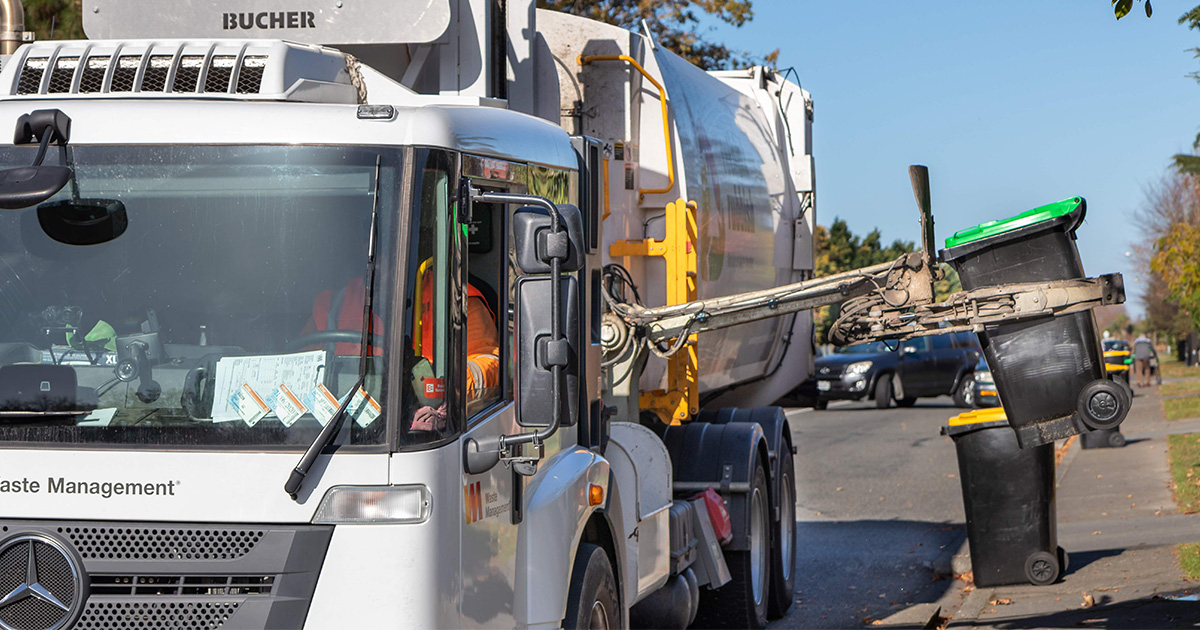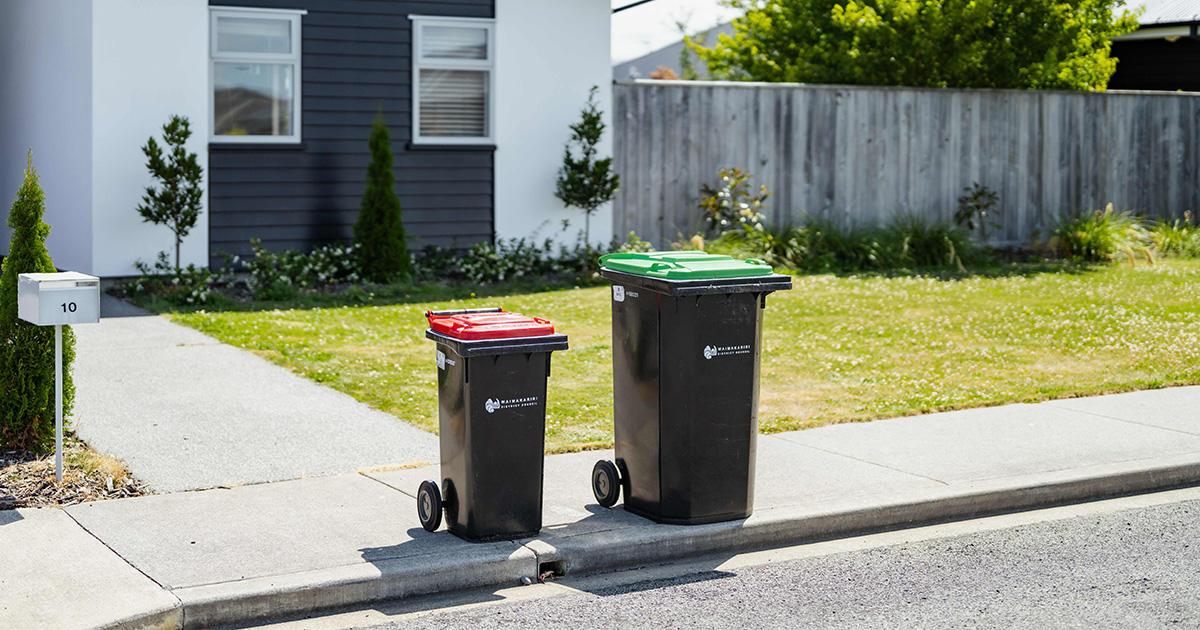Each of Waimakariri’s residents on average is dumping almost 70kg less rubbish when compared to 2017.
This is an extract from the April 2024 e-Newsletter

While on a personal basis that’s quite the feat, when considered across the District that’s 4,685 tonnes less rubbish!
Council’s 2023 Waste Assessment showed a drop in per-capita waste from 325 kg/capita to 256 kg/capita since the last assessment in 2017.
A visual audit at Southbrook Resource Recovery Park by Waste Not Consulting also indicated that the optional organics bin collection service has resulted in a significant decrease in organic waste going to landfill.
Solid Waste Asset Manager Kitty Waghorn said this is a great result for Waimakariri.
“Of the councils whose waste has been audited by the same consultant, we are one of the lowest in New Zealand for per-capita waste.”
There’s also been an uptake of recycling across the District, and she gives credit to those living rurally.
“We’ve got people from rural areas who really love coming to the transfer stations and doing their recycling there. So, even if we don’t provide kerbside collections out to them, they are still doing their bit.”

Although the Waste Assessment produced some clear wins, it was a reminder that there is still work to be done. A sort and weigh audit of organics and rubbish bins, and council rubbish bags, as well as the visual audit at Southbrook Resource Recovery Park both revealed that food scraps and garden waste is still contributing to a substantial proportion of waste going to landfill.
This shows that, while the organics kerbside collection service has been effective at bringing down the amount of organic waste making it to landfill overall, there is still garden and food waste going into rubbish bins and bags. And that’s something the Council is going to have to work with the community to change.
Since its launch in 2019, 70% of properties eligible for the organics kerbside service now have a green wheelie bin.
Households can choose the organics bin size that suits them best out of the 80L, 140L and 240L size range, but Kitty said there are many simple ways that households can reduce the amount of food scraps and garden waste that makes it into those bins each week.
“Things like the choices people make at the supermarket, through to composting at home and setting up worm farms.
“A great resource is the Love Food, Hate Waste website. They have great tips on meal-planning and making sensible shopping choices, how to store your food to prevent waste, and recipes to help people use leftovers and more commonly discarded food scraps.”
Waimakariri District Council is required to undertake a Waste Assessment every six years, in accordance with the Waste Minimisation Act 2008.
The results from the 2023 Waste Assessment will be used to identify key issues and priority areas that will influence Council’s new draft Waste Management and Minimisation Plan which is up for review later this year.
Learn more about Rubbish, Recycling & Organics
| Stay informed, stay involved. Subscribe for early access to our newsletter and exclusive Council Project & Community updates. Subscribe now |
|---|
